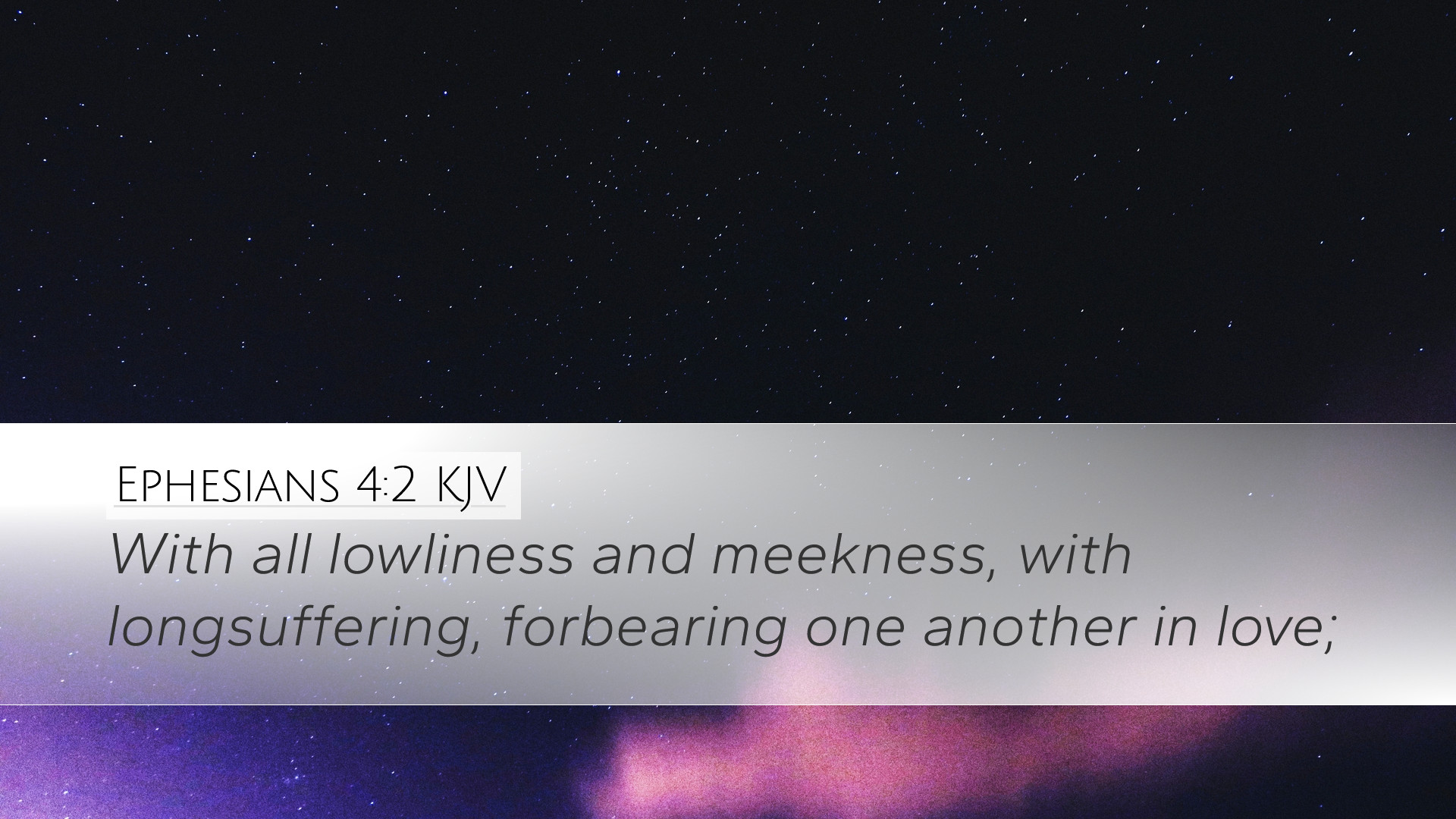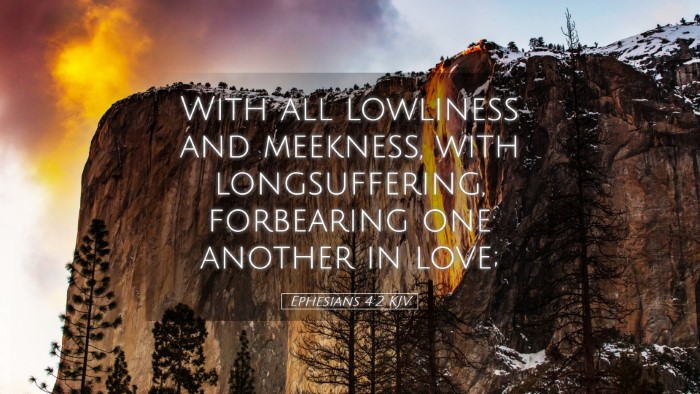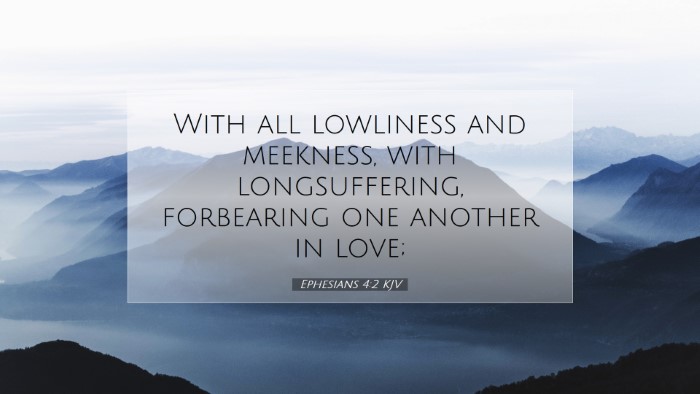Ephesians 4:2 - A Commentary
Verse: Ephesians 4:2 - "With all lowliness and meekness, with longsuffering, forbearing one another in love;"
Introduction
The Apostle Paul, in his letter to the Ephesians, emphasizes a practical Christian walk that reflects the calling believers have received. In this particular verse, he encapsulates essential virtues that should characterize their relationships with one another. This commentary draws insights from various public domain scholars to explore the theological and practical implications of this verse.
Understanding Key Terms
- Lowliness: This term signifies humility. Matthew Henry remarks that humility is a foundational quality that allows believers to recognize their dependence on God's grace.
- Meekness: Albert Barnes describes meekness as a spirit of gentleness and patience. It is not weakness but strength under control, reflecting Christ's character.
- Longsuffering: Adam Clarke notes that longsuffering refers to patience towards others, especially in bearing their faults and failings. It is essential for maintaining unity among believers.
- Forbearing: Forbearance is the act of exercising patience and restraint. Henry points out that this reflects a willingness to endure and support one another in love.
- Love: The overarching theme in Paul’s exhortation is love, which binds all other virtues together. It is both the motive and the means by which believers interact.
Theological Implications
These qualities outlined in Ephesians 4:2 are not merely ethical teachings but are deeply rooted in the Christian faith. Each virtue is a reflection of the nature of Christ, who embodies humility, gentleness, patience, and love.
Henry emphasizes that through these attributes, believers demonstrate the unity of the Spirit in the bond of peace (Ephesians 4:3). This is crucial for the health of the church, as it cultivates an environment where grace abounds and the Gospel is lived out.
Practical Applications
- Building Community: The call to lowliness and meekness encourages Christians to prioritize servanthood over dominance. This fosters a community marked by respect and mutual support.
- Conflict Resolution: Practicing longsuffering and forbearing one another aids in resolving conflicts, as it brings patience and understanding into potentially divisive situations.
- Witness to the World: A community that exemplifies these qualities becomes a powerful witness to the world. As Clarke suggests, such behavior will draw attention to the transformative power of the Gospel.
Historical Context
Understanding the historical context of the Ephesian church enhances our comprehension of this verse. The early church was diverse and included individuals from various cultural backgrounds. Paul's call for unity through humility was essential for promoting harmony among believers.
Barnes notes that the Ephesians, being situated in a city rife with idol worship and moral corruption, needed to hear this call to godly conduct to stand firm in their testimony to Christ.
Conclusion
Ephesians 4:2 encapsulates a profound call to character that is foundational for Christian living. The attributes of lowliness, meekness, longsuffering, and forbearance are essential for fostering unity and love within the body of Christ. By embodying these qualities, believers not only affirm their faith but also testify to the truth and love of the Gospel they profess.
In a world increasingly marked by division and strife, the message of this verse is ever timely and relevant. It challenges individuals and congregations to reflect Christ's nature in their dealings with one another, thereby contributing to a vibrant and loving community of faith.


